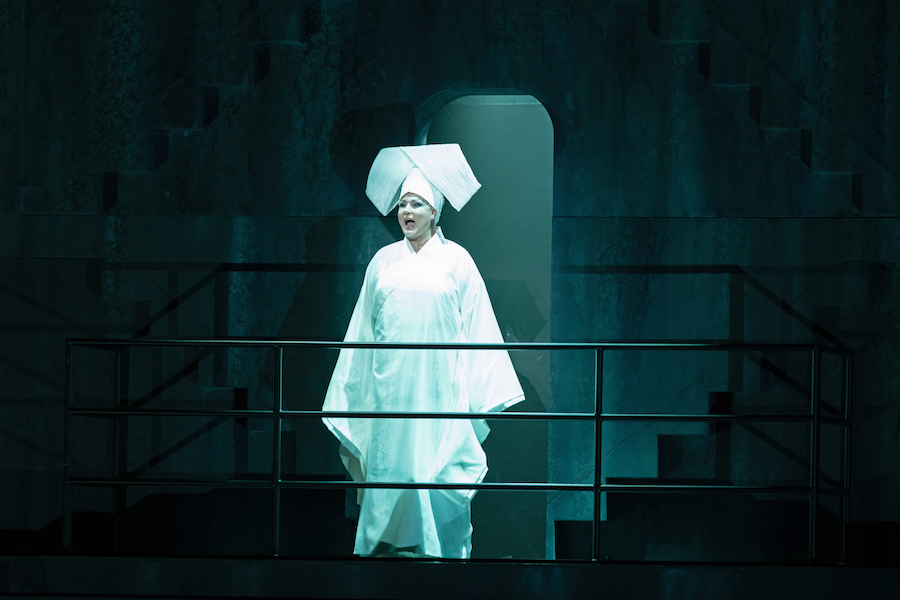Alex Ollé’s new production of Turandot for the New National Theatre, Tokyo and Tokyo Bunka Kaikan is immediately dislocating. Gone are the familiar Orientialisms, and all the colourful excess audiences raised on a steady diet of Zeffirelli have come to expect, whether with excitement or a sense of the begrudging. Monumental steel and stone structures dominate this evocation of Peking, and when Turandot and the Emperor deign to mingle with the hoi polloi, they descend from the heavens in something resembling a space ship. Designed by Alfons Flores, it’s a cold, brutalist space, awash in Urs Schönebaum’s moody, often stark lighting.
 Iréne Theorin. Photos © Masahiko Terashi
Iréne Theorin. Photos © Masahiko Terashi
This sense of dislocation is heightened by the opening pantomime, key to Ollé’s conception of Turandot as a woman haunted by masculine violence and intergenerational trauma. We see the young princess bear witness to her ancestor’s violent abduction and murder, the director foregrounding not only the precariousness of a reigning, unwed noble, but the very incident that directly informs the way Turandot treats her suitors. It’s an immediately involving conceit, one that refuses to gloss over the implausibility of the opera’s happy ending, and one which...










Comments
Log in to join the conversation.